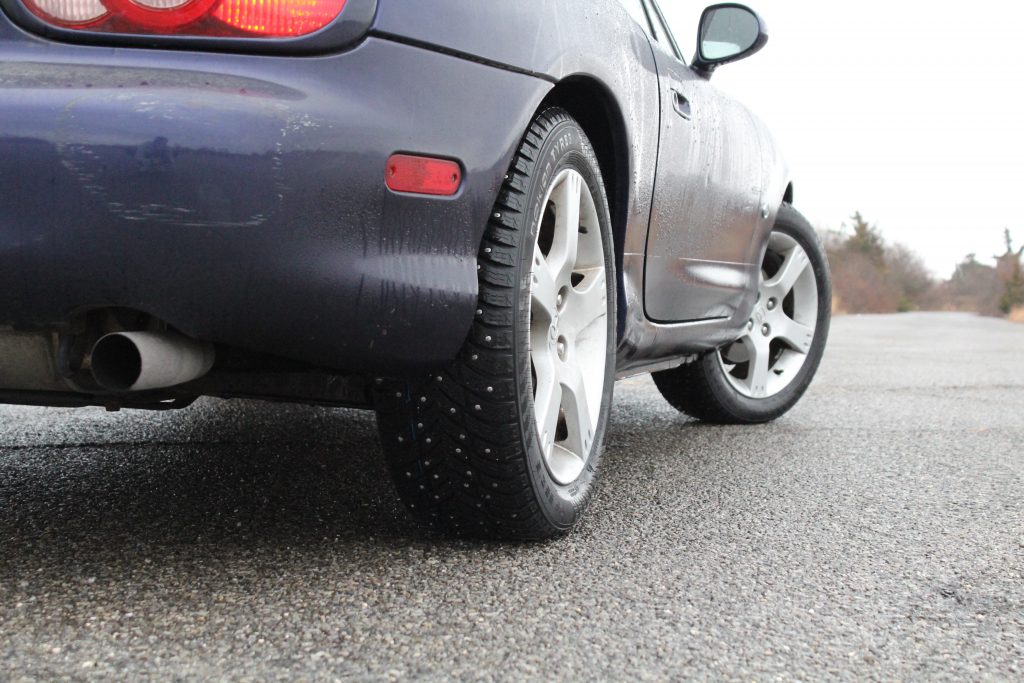Car insurance is a fairly straightforward concept. You pay a monthly premium, and in exchange, the insurance company covers you for things like crashes or theft. That monthly premium depends on a lot of things, including your age, your gender, where you live, how much you drive, and, importantly, your driving record.
The more speeding tickets and car crashes on your record, the more of a liability you are to an insurance company. And if you’re a bigger liability, the insurance company will charge you a higher premium. This leads to people avoiding insurance claims for things like crashes, instead opting to have the damage fixed under the table—that is, without getting insurance companies involved—as to keep their rates down.
According to a new survey from LendingTree, over a third of drivers questioned would rather eat the cost of the damage caused by a crash than have their insurance—which they pay for—cover the bill. And an even greater number of people have admitted to paying out of pocket to keep their rates down. From the survey results:
Insurance is designed to be a peace of mind. For some, it’s a source of fear.
A little over a third (35%) of our insured drivers have avoided filing a claim because they were afraid their premiums would go up. A similar LendingTree survey found that 39% of drivers opted to pay out of pocket for car repairs after an accident. Of those, 42% said they didn’t file to avoid a rate increase.
Interestingly, this number swung wildly depending on the age group surveyed. According to LendingTree, 78 percent of baby boomers said they’ve never avoided filing a claim due to fears of a premium increase. That percentage falls all the way to 44 percent for Gen Z drivers, with Millennials following closely behind at 43 percent.

Source: Brian Silvestro
There are some instances where it’s probably better to avoid calling your insurance company, like if you cause superficial damage to your own vehicle (LendingTree mentions rubbing against a guard rail or bumping a light post as fine examples of this). There’s no reason to add curbing your wheels or bottoming out your front lip to the record if you don’t have to.
It’s also important to note that not all claims will be held against you. If you have comprehensive insurance—the type that covers your car for non-collision incidents like theft, vandalism, hail, flood, or fire—LendingTree says that most companies won’t raise your rates for those types of claims. So make sure to check your policy before swiping your credit card for a huge repair bill. In the long run, the math might not work out.
The survey also asked about the rising costs of insurance, with some fascinating results. Over half the people surveyed (54 percent) said that rising premiums have them considering cutting back insurance coverage. And 48 percent of those surveyed said that financial constraints have them considering the same. And 58 percent say auto insurance “is a financial burden.”

Source: Brian Silvestro
Considering some of the rates I’ve been quoted recently, I’d agree with these people. I remember trying to get my old Mitsubishi Lancer Evolution comprehensive insurance a couple of years ago, only to learn it would be several thousand dollars for six months of coverage (I have no accidents or speeding tickets on my record). So I settled for the basic liability-only stuff required by law in New York, where I live. It’s tough out here.
The most surprising statistic from LendingTree’s survey is the sheer number of people who have driven with no insurance at all—something that’s fully illegal in every State except New Hampshire. An entire 30 percent of the folks surveyed say they’ve driven with zero coverage in the past. Millennials were most likely to pull this off, with 40 percent of those surveyed having admitted to doing it. Weirdly, 43 percent of parents with kids under 18 years old admit to driving without insurance.
Here’s some controversial advice: Don’t do this! Driving without insurance leaves you personally liable for any damages you may cause to your car or someone else’s. You’d also be responsible for covering medical expenses for injuries, which can easily reach tens of thousands of dollars (or more). Insurance might be expensive, but going into generational-level debt because you didn’t want to pay a few hundred bucks for your premium is not the move.









I was pulling out of a parking spot a few years ago and my taillight made contact with the bumper of a truck next to me. There was a small scratch on a rubber piece on the truck and my one of my taillights was broken in pieces. I left a note on the truck and let my insurance company know. The deductible was $300, and the body shop estimate was $600. I found replacement DOT taillights online for $110 and fixed it myself. The insurance company called a few months later and wanted to close out the claim. I told them I fixed it myself and they sent me a check for $250 I think, which was nice. (Tenth generation Civic boomerang-shaped taillights for the perverts out there.)
George is in his office at Yankee stadium, he pushes ‘play’ on a cassette
recorder. The voice on the tape sounds exactly like George.
Voice: Chapter one. In order to manage risk we must first understand risk.
How do you spot risk? How do you avoid risk and what makes it so risky?
George: This guy sounds just like me.
Voice: To understand risk, we must first define risk.
George: This is horrible.
Voice: Risk is defined as–
George (banging the recorder): Stop it! Stop it!
I’d love to see the numbers on health insurance. I’m terrified to ever have to use my mine. My employer offered ins. does not cover the largest pharmacy in the country, I recently had to pay 80 bucks out of pocket for a tetanus shot bc my ins. wouldn’t cover it. Probably still cheaper than the copay at the walk in.
What a scam.
This is the important point. You can also confirm this by talking to your agent and price-comparing different plans. Most of the cost of insurance is driven by the cost of long-term medical care if you seriously injure someone. Damage to the vehicle is a drop in the bucket compared to that.
It’s also the only real reason to carry insurance. You’re never going to make your money back on repairs because that’s not how it works. You’re insuring yourself against a catastrophic financial loss, not a new bumper for your car.
Sideswiped a pole leaving a parking space. Did just over $1500 in damage. Thanks to that, I got a 30% surcharge for the next 3 years on my insurance which cost me more than if I had just fixed it out of pocket. That’s a state mandated surcharge, by the way. Had it been under $1500, I would have gotten an exemption since I had no other claims or tickets in the previous 3 years (note it changed to 5 years this year, both for the look back period and the length of the surcharge, thanks NC. Although our state minimums did just nearly double.)
I learned the hard way after a simple glass claim… My rate jumped ~20% after a windshield replacement on my 2017 Mazda CX-5. They were billed just shy of $1,100 for that claim (turns out glass is pricey when cameras/sensors are involved).
This made my blood boil because over the years this insurer has collected about $18,000 from me for typical full coverage insurance. At the time, that was with an 11 year (200k+ mile) driving history of zero accidents/claims.
Actually, in my now 14 years of driving, I’ve only just had my first decrease in my rate – now saving me $36 per year (what a joke). It’s infuriating… over the years I’ve made small modifications to my coverage and upped my deductibles to try and keep it stable. At this point, I could easily have purchased a lightly used spare Mazda CX-5 just in case anything were to happen.
So yes, I’m terrified of what might happen if I were to use my insurance again. Even now, I have a growing rock chip on the windshield that I don’t dare put a claim in for. If I ever got into a “fender bender”, depending on the severity, I probably wouldn’t make a claim either.
With how steep and long lasting the penalties are, it just isn’t worth it. I’m already paying 20%+ of my car’s total value every single year for insurance, I have zero interest in making that 30%+. I’m not sure about you, but I remember hearing that experience and safe driving would yield lower rates. Seems like a fairytale to me, we’re all just fighting to keep our rates the same at this point.
This is 100% why I carry high liability insurance, but also the highest deductibles allowed and only cover what is absolutely required by law on my vehicles. I have been driving 42 years and have never cost my insurance company anything beyond the postage they (used to) pay to mail my bill. Our parked Touareg was sideswiped while parked last year. We took it to two shops who both quoted $6500 +/- $200. The at-fault driver’s insurance “negotiated” with the shop and came out with a $2,000 repair that looks like dog shit. Both shops wanted to replace the door or the door skin, but somehow, Geico felt that 0.200″ of body filler would suffice. Loss of value? Multiplier is 0 when your car has over 100,000 miles on it. This one will hurt us (I may re-repair and repaint it myself), but I’m sure it will cost the at-fault driver even more. All for a $2,000 Geico.
When it comes to claims that I could make, the last one was for a vehicle that I lent to a neighbor. This person stuffed our car along a Jersey barrier, deploying three air bags and bending the subframe, collapsing the suspension, in addition to body damage. The uni-body was not damaged. I knew it would be a write-off and I knew our rates over time would exceed the $15,000 that we might have been paid for the value of the car. So I spent the $3,000 in used parts, paint, new OEM body panels, and seat-belt/crash module resetting to make the car right. It was the right financial decision for me. Plus the car has no accident-damage history….another reason why I never want to report an accident to an insurance company.
Don’t get me started on health insurance. No reason to potentially mention an issue that may become a pre-existing condition in the future until there is no way for the insurance company to weasle out.
100% this, I have told friends to have the highest deductible non comprehensive plans because if you are disciplined and your old insurance bill for example was 300 a month and now down to 100, that’s 2400 a year which covers most small incidents, you save up a few years and essentially you become your insurance policy. Insurance is there to make money and true insurance should be similar to a nonprofit. Must be nice for the law to require people to subscribe to your product. Imagine if there was a law mandating tv subscription services, your Netflix bill would be 100 a month. Granted there is the “safety” factor.
Not sure where this lunacy comes from, but if you drive in a place where, say, vandalism is rampant and you file a claim for getting two windows broken and various interior fittings destroyed as thieves rifled the car, your rates are absolutely going up in most places. The insurance companies know – when you file a claim – that you are more likely to leave your car unattended where vandals are present, and as a result, will raise rates accordingly.
And yes, that’s perfectly fair. Sally the Schoolteacher who makes a meal at home every night and never stays out past 9 is a fairly low-risk individual, whereas Uncle Bob who likes to go kill a couple beers a night at Dark Alley Pub and has had his car broken into three times is a higher-risk individual. Bob might be a great guy who never drives while drunk, but the fact that he’s introducing his vehicle into a higher-risk situation is the relevant thing here.
LendingTree should probably have called around a bit more for better sourcing – there are a handful of states whose public insurance commission (or equivalent) do not permit a single comprehensive claim to trigger a rate increase, but there are not all that many of them.